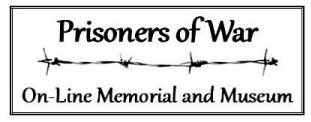Knight, V S
Victor Stanley Knight
From: Stanley Knight, 1 Feb 2020
My father victor Stanley Knight escaped with others [who I shall name later] after being a guest at Stalag VIIIB.
Whilst just starting the death march [long march] they made a break for it into the woods continuing evasion they made it to the Czech, Pardubice, Poland, Czech border.
On meeting a brave farmer who took them in, when the German patrols were known to be in the area through his contacts they went down the mines the farmer was, according to my father, probably a member of the resistance but he never said he was.
When it was time for them to move on the farmer noted all their home addresses. On their way they went through Czech, Austria, northern Italy, Switzerland. Austria was most troublesome as my father said as you couldn’t trust anyone.
They ‘handed themselves in to the Americans.
On arrival back in UK by Lancaster bomber at a base called Bassingbourn he was debriefed kept at the base for 2 weeks re-kitted out sent on leave with his back pay, some £500.
When he arrived at his mother’s house she said “why didn’t you say you were coming?” He was now 23 captured at 19 his regiment was 1st battalion The Rifle Brigade captured May 26th 1940 at Calais.
He stayed in the army until 1953. He was an instructor at the army apprentices school in Chepstow .
He had to pay tax on his back pay. Can you believe it?
A sad note when I was very young I can recall watching a war film with him and all of a sudden he ran out of the room I could hear he was very upset. At the time I didn’t know why but as you get older things become more clearer.
The others that escaped with my father were Avery, Beattie, Colby, Ditch and Simmonds
Stanley also sent the following on 12 May 2020
My father Victor Stanley Knight escaped whilst on the march, with others from Stalag VIIIB. He was captured at the defence of Calais then spent 4 years as a guest of Stalag VIIIB.
Whilst on the march he made a run for it with others (Avery, Beattie, Ditch, Cobbey, Simmonds and Gay). They ran through the woods and evaded German patrols until reaching Pardubice, Czechoslovakia. They came across a lone farmhouse where the farmer, Jan Sabtka, approached them. He couldn’t speak English, so he called his wife who understood some. After some while Jan took them back into the house where they were fed. His wife washed their clothes, and they slept the night. Next day my father and the others said they had better get going as Jan’s life would be in danger. He insisted they stay a while, as they wouldn’t get far with heavy snow coming down. He also said that if any Germans would come looking, he would take them to an old cave in the hills. So, they stayed a lot longer than they wanted as the weather got worse. Jan said he would make contact with friends to take them on further, having not said he was a member of the resistance. No one asked but the feeling was that he was.
It was time to go. Jan’s wife asked for all their addresses, but all declined. They took the Sabtka’s address and said they would be in contact one day (I now have correspondence from Jan Sabtka and his family).
The group moved on. The weather had improved. They left Czechoslovakia into Austria, where they had trouble with police. An incident took place and two policemen were left dead. They moved on into northern Italy walking along narrow streets, pinching food off of windowsills and milking cows in the fields.
Next stop was Switzerland. They were taken by the Americans, flown home to Bassingbourne US airbase, debriefed and kept there for 3 weeks till they had been re-kitted and put back on weight. My father was given back pay of about £500, less tax. He was taxed on it, incredible. Eventually he was on his way home. When he arrived his mother said, “Why didn’t you say you were coming?”
My uncle met my father and promptly contacted the Evening Standard who arrived next day for his story and photo and published it in the next edition.
He was then sent back to Winchester Rifle Brigade, 1st Battalion, for retraining for Japan. This obviously didn’t happen. He was sent to the Army Apprentices School in Chepstow as a lecturer on mechanics. He left the army in 1953.
I travelled to Pardubice in 2009 and met some of Jan Sabtka’s family. They showed me the cave where they were hidden.
Suggest an improvement to this record
